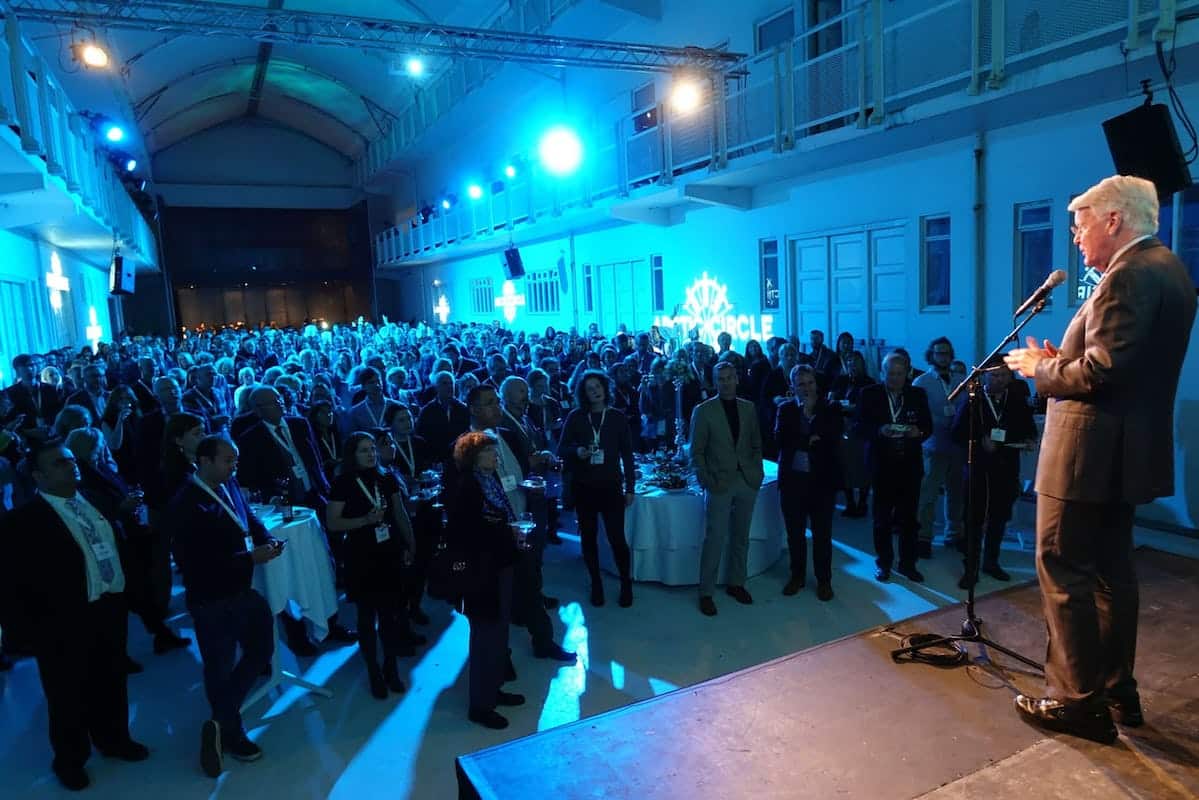The Ukraine War and Arctic Collaboration: Final Remarks

Large annual Arctic conferences, such as the Arctic Circle Assembly in Reykjavik, are important forums for Arctic collaboration. Photo: IIASA
The Arctic Institute Arctic Collaboration Series 2023
- Arctic Collaboration: The Arctic Institute’s Spring Series 2023
- Decolonization and Arctic Engagement: A Critical Analysis of Resource Development in the US Arctic
- Where do we go from here? The Fate of Scientific and Cultural Collaborations for Young People in the Arctic
- Conflict or Collaboration? The Role of Non-Arctic States in Arctic Science Diplomacy
- The Like-Minded, The Willing… and The Belgians: Arctic Scientific Cooperation after February 24 2022
- Can Arctic Cooperation be Restored?
- China-Russia Arctic Cooperation in the Context of a Divided Arctic
- From the 20th Chinese Communist Party Congress to the Arctic: the Cooperation Triptych
- The EU as an Actor in the Arctic
- Vulnerability in the Arctic in the Context of Climate Change and Uncertainty
- The Ukraine War and Arctic Collaboration: Final Remarks
On February 24, 2022, Russia attacked Ukraine and occupied parts of the country, marking a significant escalation of the armed conflict that had started with Russia’s annexation of Crimea in 2014. While Russia’s war has not escalated into the Arctic region, it has profoundly shaped Arctic geopolitics and security dynamics. Against this backdrop, The Arctic Institute’s Arctic Collaboration Series has explored how Russia’s full-scale invasion of Ukraine has impacted Arctic collaboration at a local, regional and international level.
The suspension of Arctic collaboration has undoubtedly exacerbated the existing regional vulnerabilities, especially those related to climate change and resource development. Although Russia ceded the chairmanship of the Arctic Council to Norway last week, the official state-to-state collaboration between Russia and seven other Arctic states remains halted. That is why many experts have pondered whether non-Arctic states could step up and mediate to restore constructive regional relations and foster scientific collaboration in the Arctic. In contrast to the widely studied Arctic policy of the European Union, less scholarly attention has been paid to the potential regional role of emerging Arctic stakeholders such as Belgium and Türkiye.
Over the past decade, China has also become increasingly interested in Arctic economics and politics. An analysis of the Report of China’s latest National Congress held in October 2022 anticipates that there will be no significant changes in the regional priorities of the self-proclaimed “near-Arctic state” in the coming years. Yet China is keen to increase its Arctic collaboration with Russia, and the two countries signed a groundbreaking memorandum on coast guard collaboration in late April 2023. While China has undoubtedly benefitted from Russia’s growing dependence on it, the deepening of the Sino-Russian partnership may also be against China’s own long-term interests.
The rebuilding of Arctic collaboration is necessary for the resilient future of the region. In the future, non-state actors, such as Arctic residents, Indigenous Peoples, scholars, and non-governmental organizations, will presumably play a key role in restoring Arctic collaboration. Cultural and educational events and programs are also crucial for long-term peace-building and creating collective desired futures.
Before reaching comprehensive, just and last peace in Ukraine, rebuilding state-to-state Arctic collaboration is not likely to happen. For the time being, hence, the critical question is how the work of the Arctic Council can be meaningfully continued without the participation of Russia, the largest Arctic state.